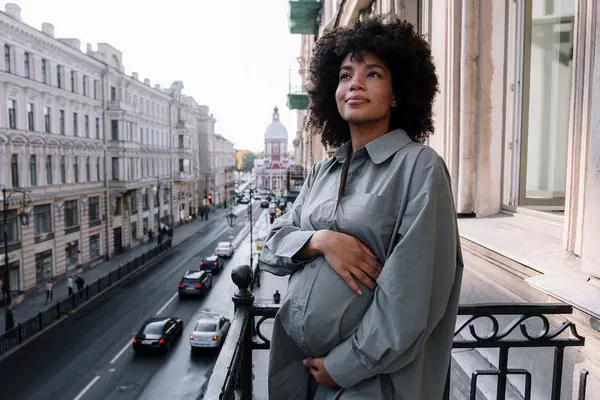The Sentencing Council is currently conducting a review to assess whether pregnancy should carry more weight as a reason to refrain from incarcerating female offenders. This evaluation, initiated through a consultation launched last month, aims to examine the potential consequences of imprisonment on pregnant individuals and the experience of giving birth while in custody. The council is expected to release its decision in November.
Present guidelines only suggest that judges “may consider” pregnancy as a factor when determining sentences.
Advocates argue that there is no statutory obligation to consider pregnancy in sentencing, and, more often than not, judges fail to do so. They contend that unborn children should not bear the brunt of their mother’s crimes and should not be penalized.
In an interview with Sky News, three women who have lived through pregnancy in prison describe their experiences as frightening, isolating, and humiliating.
One of these women, referred to as ‘Olivia,’ shared that being incarcerated while pregnant was “traumatic beyond words, terrifying, lonely, and deeply unsettling.” She pointed out the lack of midwives and 24/7 support, expressing concerns about the delay in responding to medical emergencies due to the numerous locked doors within prisons.
Another woman, ‘Susie,’ revealed that she had no one to turn to when she believed she was having a miscarriage in her cell. She described a “horrifying wait” over a weekend to receive a scan.
According to Susie, the prison environment is ill-suited for pregnant women, with inadequate food provisions and a lack of pregnancy-specific accommodations.
A third woman, who wished to remain anonymous, referred to as ‘Anna,’ found her experience “humiliating.” She disclosed that she gave birth while handcuffed to a prison officer, who even suggested she should be thankful for the type of cuffs used.
Anna’s perspective shifted when she had a second pregnancy outside of prison, realizing the substandard care provided to incarcerated women.
She said, “I had appointments that had been missed. I had a scan that was coming up. I ended up missing that a couple of times because they never had the staff to take me. Eventually, I went and was taken through the front of the hospital in handcuffs. That’s very degrading and humiliating.”
Anna added that when she went into labor, the response was delayed, and she wasn’t seen by a nurse until several hours later.
Ministry of Justice figures indicate that three births took place in prison or during transit to a hospital in 2021-22.
In July of this year, an inquest determined that “serious operational and systemic failings” contributed to the death of baby Aisha Cleary, born to an inmate in HMP Bronzefield in Surrey in 2019. The ombudsman report into Aisha’s death, published in September 2022, recommended that “all pregnancies in prison should be treated as high risk.”
Campaigners argue that this implies any prison sentence for a pregnant woman is effectively a sentence to a high-risk pregnancy, endangering both the mother and child.
The Royal College of Midwives and the Royal College of Obstetricians and Gynaecologists support these arguments, and these considerations will inform the Sentencing Council’s decision. The council will weigh the need to consider pregnancy as a more substantial mitigating factor in sentencing against the necessity to hold individuals accountable for their crimes.
A spokesperson from the Ministry of Justice stated, “Custody is always the last resort for women, and independent judges already consider mitigating factors, like pregnancy when making sentencing decisions.”
The consultation is open for submissions, with findings set to be published on November 30th, 2023. If new guidance is established, it would come into effect in April 2024.


